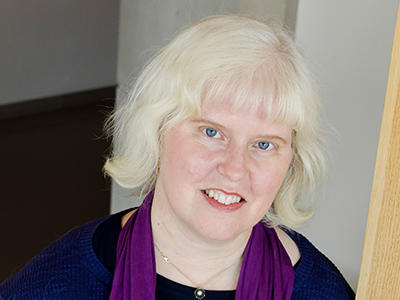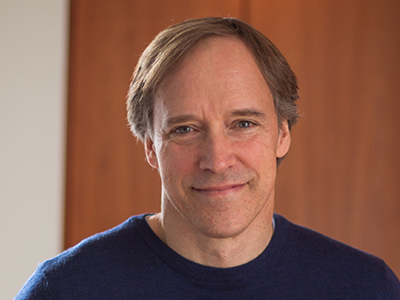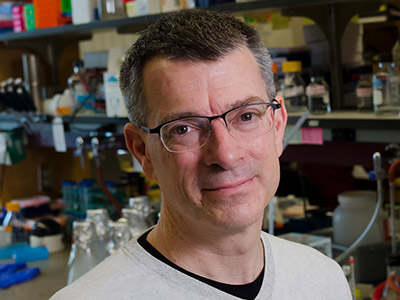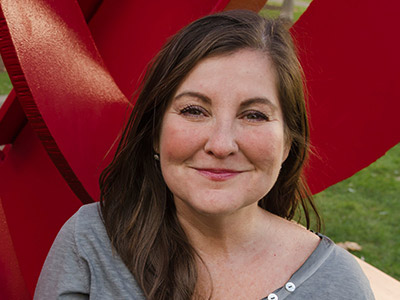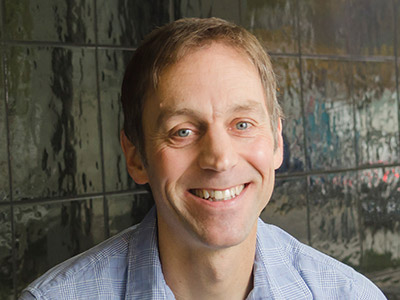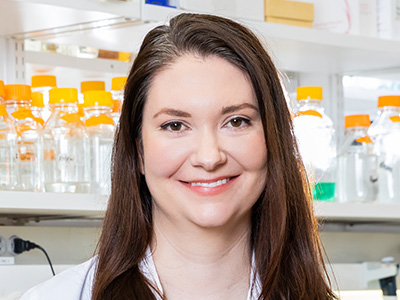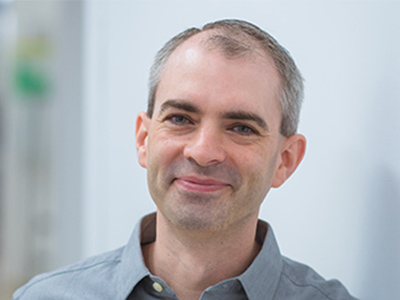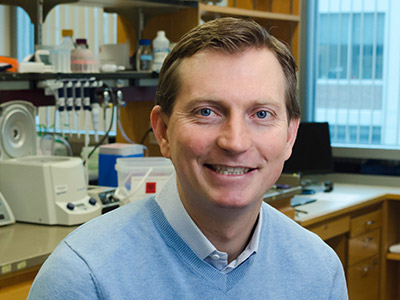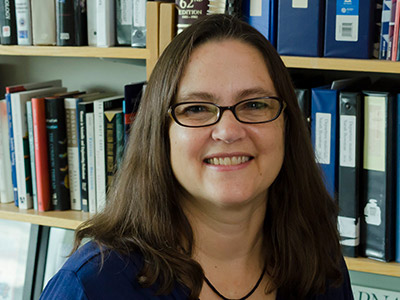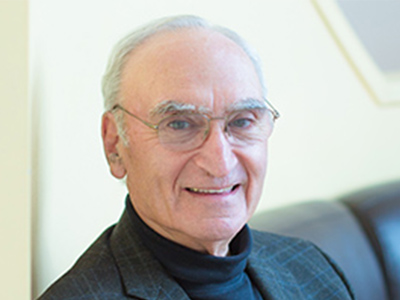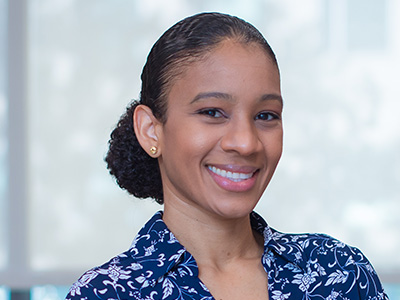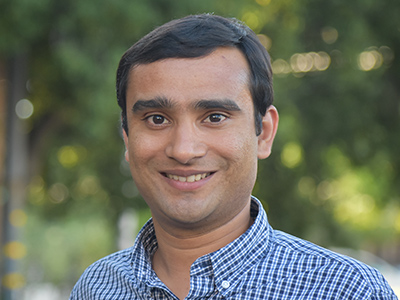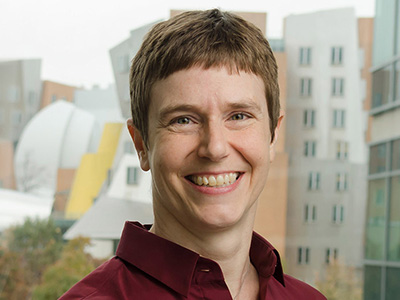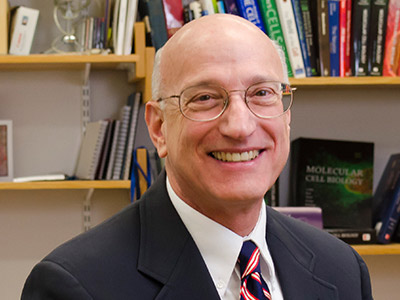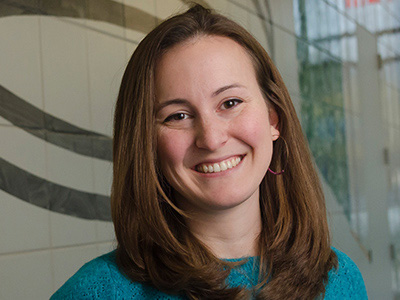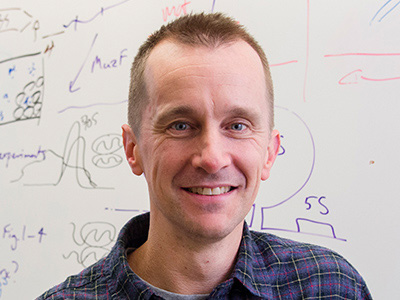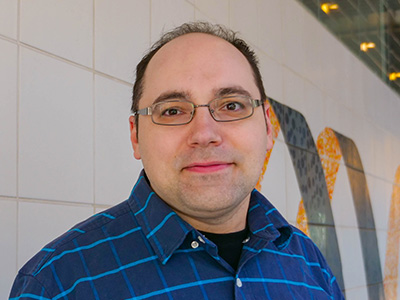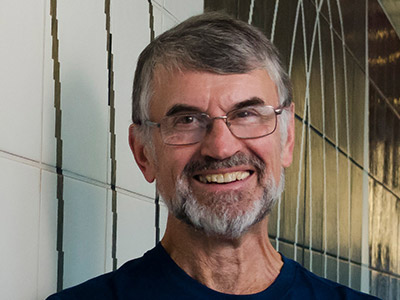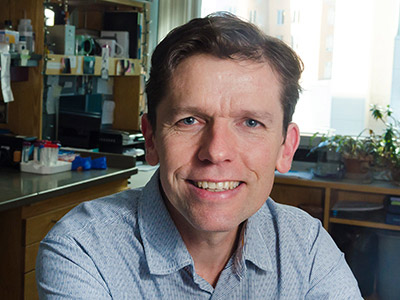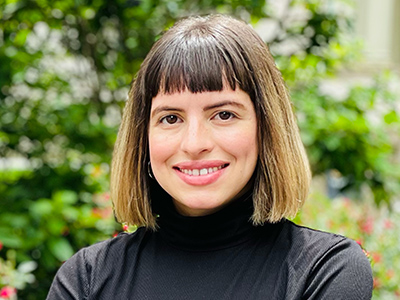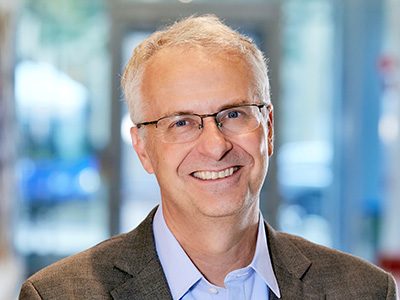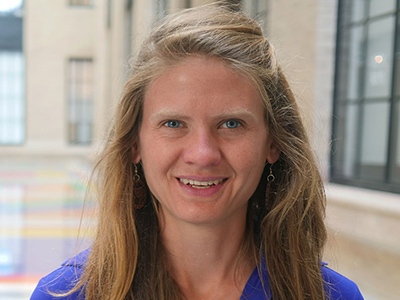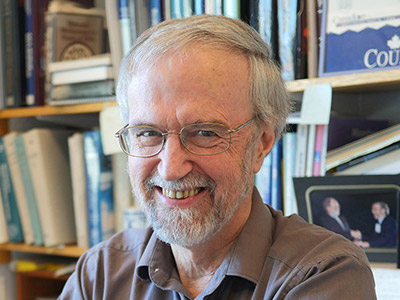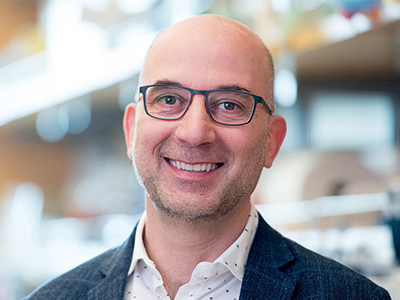Tania Baker’s current research explores mechanisms and regulation of enzyme-catalyzed protein unfolding, ATP-dependent protein degradation, and remodeling of the proteome during cellular stress responses.
David Bartel studies molecular pathways that regulate eukaryotic gene expression by affecting the stability or translation of mRNAs.
Stephen Bell probes the cellular machinery that replicates and maintains animal cell chromosomes.
Laurie A. Boyer
Co-Undergrad Officer
Laurie A. Boyer investigates the gene regulatory mechanisms driving cardiac cell fate, and how faulty regulation impacts regeneration and disease.
Christopher Burge applies a combination of experimental and computational approaches to understand the regulatory codes underlying pre-mRNA splicing and other types of post-transcriptional gene regulation.
Lindsay Case studies how molecules are concentrated and organized at the plasma membrane to regulate transmembrane signaling.
Iain M. Cheeseman
Associate Dept. Head
Iain Cheeseman analyzes the process by which cells duplicate, focusing on how the molecular machinery that segregates the chromosomes is rewired across diverse physiological contexts.
Joseph Davis develops and applies new structural (cryoEM/ET) and biochemical methods to dissect how macromolecular machines such as ribosomes and autophagy complexes are dynamically assembled, regulated, and degraded to maintain cellular homeostasis.
Catherine Drennan takes “snapshots” of metalloenzymes using crystallography and/or cryo-electron microscopy.
Gerald R. Fink investigates how fungal pathogens invade the body, evade the immune system, and establish an infection.
Whitney Henry studies ferroptosis in human health and disease with a focus on cancer.
Yunha Hwang combines machine learning and experimentation to study the biochemistry, ecology and evolution of microbial systems.
Barbara Imperiali studies the biogenesis and myriad functions of glycoconjugates in human health and disease.
Ankur Jain investigates the role of RNA self-assembly in cellular organization and neurodegenerative disease.
Amy E. Keating
Department Head
Amy E. Keating determines how proteins make specific interactions with one another and designs new, synthetic protein-protein interactions.
Monty Krieger studies cell surface receptors and cholesterol and their impact on normal physiology and diseases, such as heart disease and infertility.
Rebecca Lamason investigates what happens when cellular functions are hijacked by unwanted interlopers: namely, the bacteria that engender diseases like spotted fever and meningitis.
Michael T. Laub explores how bacterial cells process information and regulate their own growth and proliferation, as well as how these information-processing capabilities have evolved.
Gene-Wei Li
Associate Dept. Head
Gene-Wei Li investigates how quantitative information regarding precise proteome composition is encoded in and extracted from bacterial genomes.
Sergey Ovchinnikov studies protein structure and evolution at environmental, organismal, genomic, structural, and molecular scales.
Robert T. Sauer
Professor Emeritus
Before closing his lab, Bob Sauer studied intracellular proteolytic machines responsible for protein-quality control and homeostasis.
Thomas U. Schwartz investigates communication across biological membranes, using structural, biochemical, and genetic tools.
Phillip A. Sharp
Professor Emeritus
Before closing his lab, Phillip A. Sharp studied many aspects of gene expression in mammalian cells, including transcription, the roles of non-coding RNAs, and RNA splicing.
Yadira Soto-Feliciano studies chromatin and epigenetic regulation in normal development and cancer.
Ron Vale is interested in how proteins generate biological movement and intracellular signaling and how these molecular machines adapt when challenged by temperature extremes, drought, or disease.
Matthew Vander Heiden is interested in the role that cell metabolism plays in mammalian physiology, with a focus on cancer.
Seychelle M. Vos investigates how genome organization and gene expression are physically coupled across molecular scales.
Graham C. Walker studies DNA repair, mutagenesis, and cellular responses to DNA damage, as well as the symbiotic relationship between legumes and nitrogen-fixing bacteria.
Jonathan Weissman investigates how proteins fold into their correct shape and how misfolding impacts disease and normal physiology, while building innovative tools for exploring the organizational principles of biological systems.
Michael B. Yaffe studies the chain of reactions that controls a cell’s response to stress, cell injury, and DNA damage.

